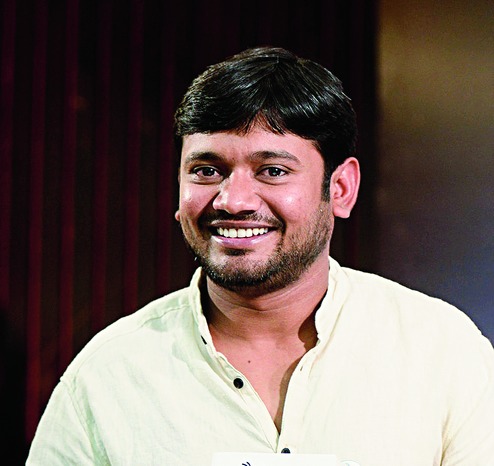
New Delhi, Oct. 12: Delhi High Court today set aside the punishments JNU handed to Kanhaiya Kumar and 18 other students for allegedly violating rules during an event to commemorate the death anniversary of Parliament attack convict Afzal Guru on February 9 last year.
The order by Justice V. Kameswar Rao asked the appeals committee of JNU to hear the matter afresh after giving the students the opportunity to examine the report of the inquiry panel the university had set up to probe the allegations.
The court said JNU should "pass a reasoned order as expeditiously as possible, preferably within six weeks" of giving the accused the chance to go through the documents. "Till such time, the order dated April 25, 2016, shall not be given effect to," Justice Rao said.
Three students - Umar Khalid and Anirban Bhattacharya, who organised the February 9 event, and then JNU student union president Kanhaiya, who had intervened to prevent a clash between the Akhil Bharatiya Vidyarthi Parishad (ABVP) members and the organisers - had been arrested on sedition charges.
The police are yet to file a chargesheet and a magisterial probe found that the videos where students were seen chanting anti-India slogans were doctored.
JNU conducted its own inquiry and the probe panel recommended rusticating three students, including Umar and Anirban, for five years, removing two students from their hostels, debarring the two academics from other Delhi universities from entering JNU and fining 14 others, including Kanhaiya.
The punishments got stayed in September last year after the students moved the high court.
Anirban and Democratic Students Federation leader Aishwarya Adhikari, who had been fined, have completed their courses and left JNU.
After JNU's longest indefinite hunger strike in May, the high court had ordered vice-chancellor M. Jagadesh Kumar not to punish students without hearing their appeals. The court had stayed the appeals committee's confirmation of the punishments after the students alleged they were not given a copy of the inquiry panel report and therefore were unable to defend their case.
JNU officials were not available for comment today.
Umar told The Telegraph : "The court has asked JNU to examine the case afresh according to the principles of natural justice. In the last one-and-a-half years, we have seen this violation of natural justice by politically motivated inquiries... become the norm. The process itself is the punishment where the varsity wastes tax payers' money to harass students, who have to beg for contributions to hire lawyers and keep on fighting the cases till they tire us out."
Kanhaiya said: "It is a victory of the judicial process that we believe in. On the directions of the government, JNU harassed its own students. This high-level drama in the name of an inquiry was rejected by the high court."











